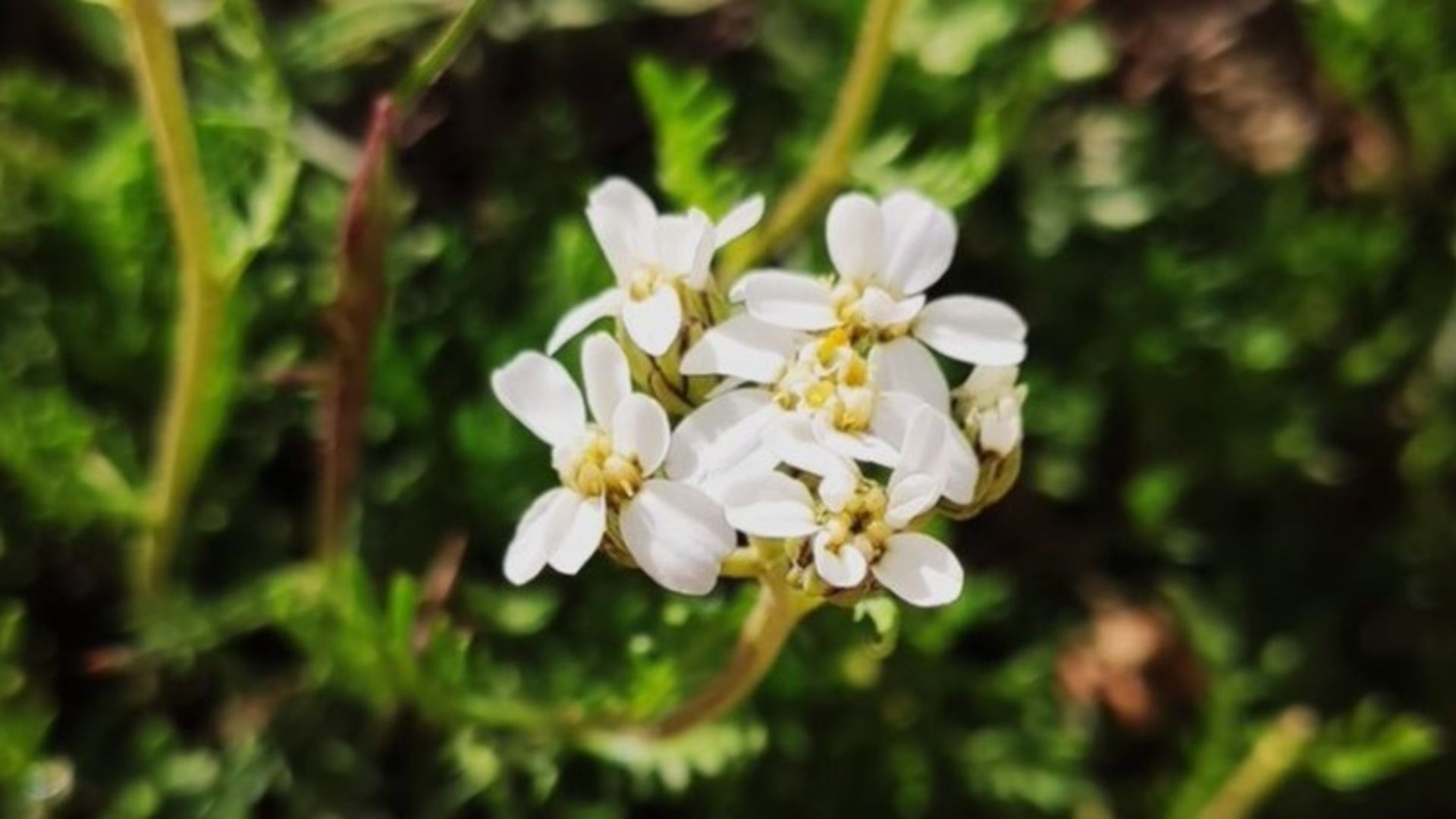Moschus-Schafgarbe
Achillea erba-rotta subsp. moschata (Wulfen) Vacc
In the Valais it is called “Bisamschafgarbe” and in the Bernese Oberland “Gabüse” – many people also know the fragrant leaves of this species as “Genepi”, “Genipi” or “Iva”. Many people appreciate the pleasantly tart flavour of this yarrow plant in grappa, and in Graubünden it is associated with spirits distilled in the mountains called “Wildfräuleinkraut” or “Wildmännli Chrut”.
The Musk Yarrow is a perennial plant that grows to about 25 cm. It is easily recognisable by its feathery, strongly aromatic leaves. It belongs to the enormous family of composite plants and it bears umbrella-like clusters of many individual white flowers – you will be amazed when you look at them with a magnifying glass. A magnifying glass is also the best way to see the countless glands on the leaves. These eye-catching “spots” serve as special oil reservoirs in which the aromatic oil is stored.
Facts and Figures
The leaves of this species are used in herbal medicine to treat loss of appetite, diseases of the stomach, intestine and liver, but also for weak nerves and externally as a wound remedy. Today, however, these uses have been somewhat forgotten and the plants are still mainly used to flavour liqueurs and in Alpine bitters. It is said that it was also propagated to assist with abortions in the past and the commonly used name “Iva” is said to be derived from the Latin abigere meaning abortion. Other popular names such as “Frauenraute” may derive from this use.
Territory
The Musk Yarrow is widespread in the Swiss Alps and it is found particularly on low-calcareous substrates. The species can be found throughout the Alps, but especially in eastern parts. It is a typical inhabitant of loose scree soils and plays an important role in holding these soils together with its roots. more information
